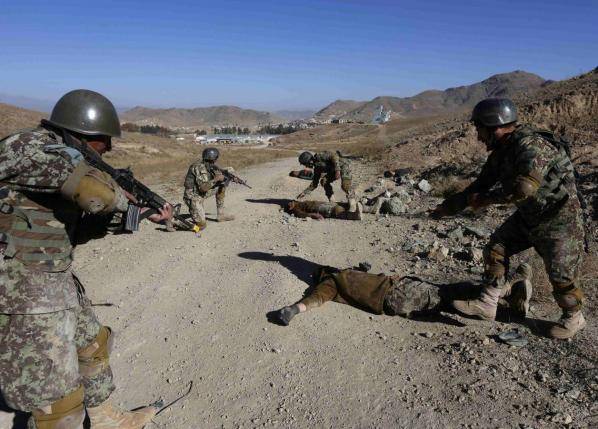The draw-down of US forces in Afghanistan has led to the Afghan army being severely tested over the past few months. With the Taliban gaining ground, ISIS vying for a greater portion of political space and the government and the army struggling to contain the increasing attacks all over the country, a positive outcome through the next round of talks - reportedly scheduled later this month - between the government and the Taliban is crucial for an end to the violence in the country. In any case, history has proved that Afghanistan cannot be controlled at the barrel of the gun. After decades of war, there is no absolute good or bad in the country, which is an added problem. The Taliban, the government and the people are all inextricably linked together, making negotiations the only option to bring some semblance of harmony between opposing sides in this conflict.
The demands of the Afghan Taliban are unacceptable unless a ceasefire is called immediately. Removing travel restrictions, releasing prisoners, unfreezing assets and asking foreign soldiers to leave Afghanistan can only come later; once the Afghan government is certain that the Taliban will not use this breathing room to renew their assault on the Afghan people. The Quadrilateral Coordination Group (QCG) has implored all factions within the Afghan Taliban to indulge in dialogue because these divisions make it near impossible for the Afghan state to negotiate. However, the possibility of negotiations led to further factions being created, and these cannot be reached out to no matter how hard the QCG tries. Those that remain are hesitant, and must be convinced in this round if any headway is to be made. Direct talks between the government and the Taliban is the only forward.
Pakistan’s proactive involvement in this process is imperative in order for there to be a chance for its success. Fifteen years of US military presence in the country has made it clear that Afghanistan can only begin to be peaceful through negotiations between the government and the Afghan Taliban. The Pakistani establishment’s links to the Taliban must be used in order to bring them to the table. The civil-military leadership has assured the international community that Afghan peace is a number one priority and it must prove this by engaging reluctant Taliban leaders into dialogue. Peace in Afghanistan would result in the removal of safe havens in the country for leaders of TTP, and if for nothing else, that fact alone should motivate Pakistan to ensure that Afghanistan finally starts moving forward on the path to stability.
Thursday, April 18, 2024
Inching Towards Negotiations

X(Twitter) banned due to company's failure to address concerns, IHC told
9:07 PM | April 17, 2024
Iranian envoy lauds Pakistan's defence capabilities
9:06 PM | April 17, 2024
Ayesha Zafar’s unbeaten 108 goes in vain
9:06 PM | April 17, 2024
Dr Qibla Ayaz steps down as CII chairman
9:05 PM | April 17, 2024
Pakistan and West Indies ODI series commences tomorrow
9:04 PM | April 17, 2024
Rail Revival
April 17, 2024
Addressing Climate Change
April 17, 2024
Saudi Investment
April 17, 2024
Political Reconciliation
April 16, 2024
Pricing Pressures
April 16, 2024
Workforce inequality
April 17, 2024
New partnerships
April 17, 2024
Shikarpur crisis
April 17, 2024
Peace quest
April 17, 2024
Democratic harmony
April 16, 2024
ePaper - Nawaiwaqt
Advertisement
Nawaiwaqt Group | Copyright © 2024





